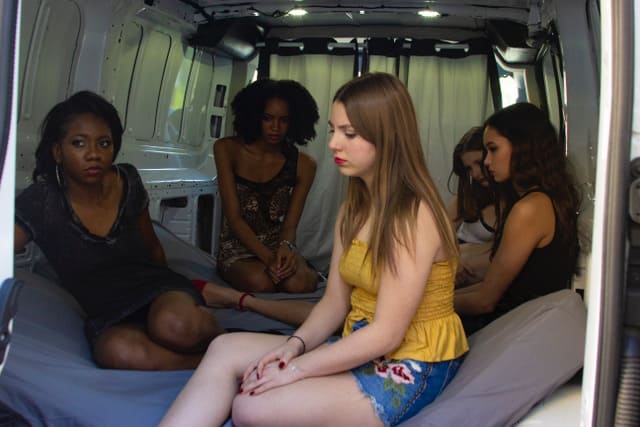The Heartbreaking Reality
The Vulnerability of Victims
One misconception about this issue, is that it only happens to certain types of people. The reality is that trafficking can happen in any community, to any gender, race or class of person at any age. Tactics used to lure victims into forced labor or sexual acts can include everything from inventing a false job interview for the victim to attend, to starting a fake romantic relationship via an online app. There could be offers of money, promises of luxury accommodations, etc. … all used as a ruse to build trust and isolate the targeted individual, to a location they won’t be able to escape.
Victims can also be taken by physical force, or drugged without consent and transferred to an unfamiliar place where they’re confronted with do-or-die choices, if they don’t participate in the abuser’s plan.
Once they are brought into the cycle of abuse, victims are often manipulated psychologically. The mental abuse can range from shame about their actions, which prevents them from trying to escape, to threats of additional torture if they fight back, or harm to their families.
The Polaris Project documents stories from survivors, which helps demonstrate the various ways abusers commit these crimes and the resilience the victims demonstrate to endure and overcome them. Please note the content within the following two links may trigger trauma in survivors.
From a high school student who escaped after nine months of abuse to a young homeless man who took a job to overcome poverty, which led to him being trafficked, these stories demonstrate the various ways innocent people can be lured into a life of abuse.
It’s important to recognize the signs of how these criminals operate to keep yourself and your loved ones safe
The Power of Film
At the start of this year, we reported on a film that The White Feather Foundation proudly supported, Angie: Lost Girls, which focuses on a fictional version of one victim’s human sex trafficking story.
Since our interview, the film has continued to soar, winning Best Feature at the Chandler Film Festival, earning the Narrative Feature Grand Prize at the Socially Relevant Film Festival and it was also the Official Selection at the Hot Springs International Women’s Film Festival.
If you haven’t seen the film, there is an opportunity to screen it for free tonight & attend a Q&A (all virtually), at 5:30 p.m. Pacific Time. Follow this link to gain access.
The Ways We Can Help
Through education, awareness and action, there are ways to help those who have been subjected to human trafficking and prevent others from becoming victims. Here are some ways to help make a difference:
- Attend a screening of/or stream Angie: Lost Girls to learn more about the issue and spread the word about where it’s showing. A list of links and places it can be viewed is here: Amazon, iTunes, Vudu, Xbox, Google Play, YouTube Movies, PlayStation (available via PS Video app and Console) and FandangoNOW.
- Post about human trafficking on your personal social media pages. Be sure to use the official hashtag #EndHumanTrafficking for maximum exposure on all digital platforms.
- Donate to reputable organisations like Artists for Change, Saving Innocence
and the Association for the Recovery of Children
who work to help victims and raise awareness to prevent future trafficking. - If you or someone you know is in danger of trafficking: In the U.K., report it based on the guidance provided at Citizens Advice. In the U.S., send tips to the
National Human Trafficking Hotline. In Australia, notify the Australian Federal Police directly of potential victims. In Canada, call the Human Trafficking Hotline at 1-833-900-1010 with tips. For all other countries, please check with your local authorities for the best way to take action.
Together, let’s bring this horrific atrocity to an end worldwide.
Angie: Lost Girls photo used with permission, courtesy of Julia Verdin.
*Statistics cited from the International Labor Organization.


